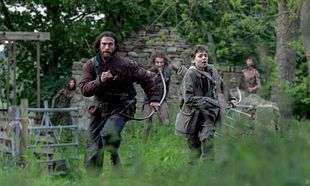A kooky indie comedy trying to be a mainstream rom-com and ends up being neither.
Her friends are moving on with careers and marriages but Knightley’s life peaked at a wonderful prom. She ends up hanging out with Chloe Grace Moretz and her teen mates, who are as emotionally mature as Knightley is. Spinning some yarn about the lease being up on her apartment and it being a week until her new apartment becomes available, Knightley moves with into Moretz’s bedroom, much to the chagrin of single dad Sam Rockwell.
There are two movies here. There’s the oddball looseness of Lynn Shelton’s Humpday and Your Sister’s Sister and a mainstream romantic-comedy. When Shelton stays true to her indie roots we get great scenes like when Moretz visits her estranged lingerie model mother (Gretchen Mol) and all the motherly things mum can offer is give her daughter the free underwear she gets with her job. It’s a scene that manages to be cold and sad and touching.
When Shelton loses that track, we get scenes where close friends suddenly take offence to things no one would ever take offence to just so we can have the aw-kward scene, we get choreographed silly wedding dances, and moronic parents who plan to name their kid Juppiter (sic). It’s all forced.
But its worst crime is the hoops it jumps through to bully a romance out of the Knightley and Rockwell. There’s a strange woman sleeping in his daughter’s room but a few shots at the bar later and he’s in love with her. They simply don’t spend enough time together to warrant these feelings for each other. The subplot of Moretz and the school stud is all over the place.
This is a shame because there is the guts of good movie here. Similar to Frances Ha and Young Adult, Say When explores the Peter Pan theme of adults who can’t grow up. And why grow up? Adults act like children anyway: Knightley’s dad (Jeff Garlin) cheats on her mum, Moretz’s mum split and hasn’t been seen since, and Moretz’s friend’s father is ‘being a real dick’ in the divorce. And it’s cute that Knightley is forced to accept some responsibility for her life through Moretz, who begs her to pretend to be her mother during a parent-teacher meeting.
They should have been satisfied with the indie oddness and left it at that.



















































































